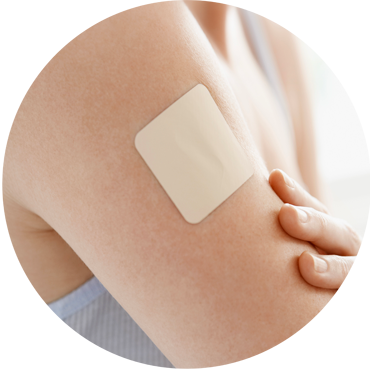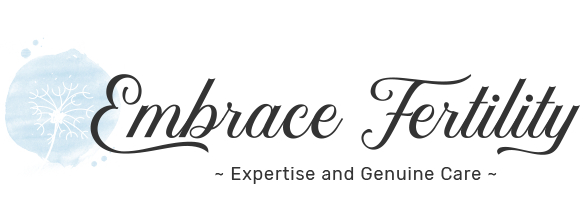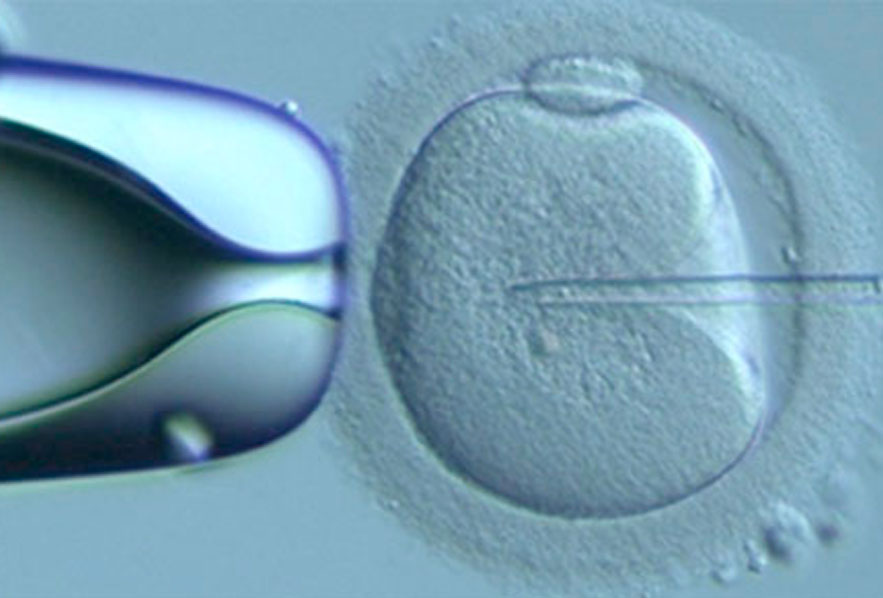The best way to improve your fertility is to increase the quality of your eggs and sperm and, also ensure the womb provides the best environment for a growing embryo. Leading as healthy a life as possible is the best first step for improved fertility. Most of us know which activities are good for your health and what makes our health worse. The hard part is making the life changes that mean you spend more time doing healthy things and less time in an unhealthy zone. It is important to realise that any step towards healthy living, however small, will improve your fertility. Doing the best you can (rather than achieving absolute perfection) is much better than giving up. A lot of my patients have given me their tips for how to make the changes that will improve fertility and I have tried many of them. I would like to share their wisdom and hopefully give you some ideas of ways you could help yourself to become pregnant.
Healthy Things
These are the healthy things you should try to spend more time doing:

1. Eating Healthy Meals
Taking time to plan meals that have more vegetables, a reasonable amount of protein and less sugars and carbohydrates will improve the metabolism of all your cells, including your eggs, sperm and the cells that line the womb. This is particularly important if you have a family history or tendency to diabetes. I spoke in a podcast which discusses the importance of managing blood sugars and wrote a paper showing how eggs and the lining of the womb was altered by high sugars and insulin. Blood sugars, insulin and lipids can be tested as part of a fertility workup and sometimes we use medications to help manage these conditions and aid conception.
Some of my patients have had some great ways that helped them change to a healthy diet:
- Download calorie counting apps and use them every time you eat
- Take time during the week to plan nutritious meals and pre-prepare them
- Seeking help from family and friends to keep your diet on track
- Joining weight loss programs
- Book in to see a dietician or nutrition specialist
- Subscribing to a delivered calorie control meal services
- Look at websites that help describe healthy eating
- Intermittent fasting
- Reducing the size of your plate to limit portion size
- Limiting carbohydrates and increasing protein intake
- Planning emergency ‘nice things to do’ instead of eating when stressed
There are a lot of fertility diets and information on healthy eating during fertility treatments.
- The CSIRO diet is well researched
- The fodmap diet can be helpful for people with endometriosis
- For those with PCOS or a tendency to diabetes I recommend visiting Diebetic Gourmet

2. Healthy Regular Exercise
Exercise delivers more oxygen to your cells, reduces stress, helps you feel fitter and healthier and improves the circulation to remove by products from the cellular metabolism. Regular moderate exercise has been shown to improve fertility outcomes and improve ovulation in women with polycystic ovarian syndrome. Regular exercise also reduces anxiety and improves self-esteem when you are trying to conceive. When life gets busy, it is hard to decide to exercise and take time for yourself, but it is worth it.
Some things my patients have done to help them exercise more include:
- Getting a routine that is part of your life, rather than exercise fitting into your schedule is important
- Put your running shoes beside your bed at night and don’t put your feet on the ground in the morning until you have put them on and gone for a walk or run
- Join a Gym and see a personal trainer or a friend -you are less likely to skip excercise if you have someone expecting you to turn up
- Revisit sports that you used to do and enjoyed – swimming, team sports, cycling, yoga
- Plan to exercise as a way of socialising with friends (eg go walking rather than meet for a meal)
- Plan holidays that incorporate some exercise eg hiking, sailing, skiing, swimming
- Buy gear and equipment that is modern and appropriate so you can make the choice to exercise without any barriers
- Take your dog for a walk
There is more information on exercise on yourfertility.org
3. Taking Pre-Pregnancy Vitamins
Pre-pregnancy vitamin supplements are recommended when you are trying to conceive.
For Women
Taking the minimum folate requirement of 500mg (0.5mg) reduces the risk of having a baby with spina bifida. There are many daily pre-pregnancy multivitamin tablets for pregnancy that include other ingredients that we think are good for fertility and conception, like vitamin B, vitamin D and iodine. We recommend taking a daily preconception vitamin with folate in it. Your pharmacist can explain the differences between brands, but most brands contain the most important supplements.
For Men
More research is needed to establish how much benefit fertility supplements give men who are trying to conceive however most fertility specialists would recommend that men take a supplement to improve their fertility. I did manage to find a very detailed comparison of all the different brands available to Australasians. Most of the research about male fertility vitamins is not specific to any brand and compares any vitamin to not using them. Check with your pharmacist about the one that would most suit you.
Other Supplements
There are specific circumstances where higher doses of folate and B vitamins are recommended (eg high homocysteine levels or an altered MTHFR gene sequence) or when supplements like omega-3, inositol, colostrum and CoQ10 (eg miscarriage, PCOS or miscarriage) may help conception. Your fertility specialist should be able to assess your need for these supplements and recommend their use.
It is important that natural supplements like Chinese herbs and plant supplements promote fertility. Generally natural supplements (soy, clover etc) that have steroid hormones (estrogen, progesterone and testosterone) are going to interfere with fertility and should be avoided or only used at certain times of the menstrual cycle. It is important to take advice from naturopaths with a specific interest in fertility, who provide supplements that will work in concert with your fertility treatments and who can work with your fertility doctor.

4. Taking Time to Rest and De-Stress
Fertility treatment is stressful to undertake and sometimes people are distracted into anxious or depressing thoughts. It is hard to stay balanced especially when trying to add in the time it takes to undertake fertility therapies and the changes in emotions that go with fertility treatment to a life with a lot of work, social or family commitments. We do provide counselling and formal support for people undertaking fertility treatment (ask if you think it would help), but many people I have looked after have suggested additional ways that helped them manage stress.
- Sit in the sunshine for 5-10 minutes each day
- Download apps for meditation and mindfulness and take 10-15 minutes clearing your thoughts and resting your brain each day
- Plan 15-30 mins on your own to think and plan each day
- Get a professional mentor
- Plan to spend time around the friends and family that make you feel happy
- Spend regular time with animals
- Plan holidays to nice places
- Consider acupuncture
- Say no when you have too much on
- Talk to others going through the same experience either online or in person
- Getting support from counsellors or other health carers who know about fertility
- Develop good sleeping routines
- Daytime naps on weekends
Unhealthy Things
There are other unhealthy things that will increase stress in cells (oxidative stress) and put pressure on your body’s chemistry and make it more difficult to conceive. These are often hard to change as they are often habits that people have had for years. Furthermore, no-one notices you ‘not doing’ something unhealthy so it is hard to get positive feedback when you spend less time in an unhealthy habit. Some of your friends may encourage unhealthy habits because it is somethings that you share together, which makes it even harder to change. At the end of the day each person can only do their best, and even small changes make a difference. Again, I have heard a lot of ways of making these difficult changes, and some may give you a new idea that may work for you.
These are unhealthy things that you should try to spend less time doing:

1. Smoking
Everyone knows that smoking is bad for your health and I think it is one of the hardest things to give up. We do have very good evidence that smoking will damage eggs and sperm and make it hard for all cells in your body to stay healthy. There are lots of ideas about how to change smoking habits and here are a few I have picked up.
- Use patches and/or chewing gum instead of smoking
- Think of another activity to do at the times when you usually smoke (eg if you smoke at the pub then try meeting somewhere else where your less likely to smoke).
- Ask friends and people around you to help you stop and to try to not smoke around you (eg stop together)
- Ask Quitline for advice and support
- Acupuncture or hypnotherapy
- Keep busy so that you do a healthy activity, rather than smoke, when you’re bored
- If you can’t give up reward yourself for cutting down
- Try again even if you planned to quit and it didn’t work

2. Alcohol
People who drink heavily find it much more difficult to conceive that those who abstain or drink lightly or moderately. Many people use drinking to manage stress (and fertility treatment can be stressful). Drinking several units of alcohol every day or having drinking binges will have a negative impact on your ability to conceive. Drinking heavily makes it harder to conceive for lots of reasons.
For Women
- The release of the egg from the ovary can be disrupted, taking away the chance of conceiving that month and causing irregular periods.
- Over time your sex drive can be reduced making it more difficult to try for a baby
- Drinking in early pregnancy is associated with miscarriage and pregnancy complications and can affect the development of your baby. We don’t know the safe amount of alcohol to drink in pregnancy so it is recommended to stop completely if you are pregnant
For Men
- Sperm take 3 months to grow so although you may not drink often or regularly, heavy drinking such as 1 or 2 ‘big nights out’ binge drinking can alter a sperm count and cause DNA damage, making it more difficult for sperm to fertilise an egg.
- Heavy drinking lowers testosterone levels and reduces desire for sex and can make it more difficult to ejaculate.
Drink Wise has some more information on alcohol and conception
Some ways my patients have changed their alcohol intake to improve their fertility include:
- Avoid drinking during the week
- Socialising in places where alcohol is less likely to be served eg at home or at an outside venue rather than the pub
- Have alternative non-alcoholic drinks at home as a first option for after work
- Alternating drinking water with alcoholic drinks to reduce binging
- Avoid “big nights out’ in the 3 months leading up to a fertility treatment such as IVF
- Avoid opening bottles of wine, which then need to be finished
- Have less alcohol around the house so you are less tempted to drink
- Ask your friends and family to help you drink less
- Spend more time around people who support you in drinking less

3. Caffeine
The jury is still out on how much of an impact caffeine has on fertility as caffeine does increase cellular stress, especially for those with high homocysteine levels or the MTHFR mutation. A high caffeine intake was associated with delayed conception for women and a lower sperm count for men. Most doctors recommend limiting the amount of coffee and other caffeinated drinks to 2 a day. So what is the alternative?
- The best drink for your health is water – it rehydrates and is caffeine-free
- Soft drinks often have high sugar and caffeine so if you are going to drink them use diet and low caffeinated versions
- Some herbal teas do have antioxidants, vitamin C and are caffeine-free – the best ones are ginger, spearmint, peppermint, rooibos and dandelion)
- Some herbal teas are high in caffeine so should be limited including Black tea, Oolong, Lapsang Souchong
- Some herbal teas can alter the blood chemistry and are best avoided – Ginseng, St John’s Wort, Penny Royal and liquorice.

4. Drugs
Using Drugs like marijuana, methamphetamines and opiates worsens fertility outcomes for men and women. The heavier the use the worse the fertility outcomes. Some of the effects of drugs include altered reproductive hormone levels, increased cellular stress, distracting people from healthy lifestyles and habits and increasing the risk of contracting a sexually transmitted disease like chlamydia through unprotected sex (which can damage the fallopian tubes and alter the transport of sperm and eggs). Drugs also affect the health of a pregnancy with each type of drug having a different impact.
and also some blogs
- We asked three doctors how illegal drugs affect your pregnancy
- We asked three doctors what drugs do to your sperm
It can be really hard to stop taking drugs and it is best to get professional help as stopping may cause withdrawal symptoms. The best site to get help and advice in South Australia is Know Your Options.

Being the healthiest you can be
I have focused on the main things that will improve your health and help fertility but there are other things to avoid such as work exposures to chemicals and Xrays, overheating in spa baths or spending a lot of time with hot laps tops on your lap (for men). This article covers most lifestyle factors to think about. Our nursing staff do support a lot of people to make healthy changes so you can always ask them questions or email us at care.louise-hull.com.
I hope some of these changes my patients have tried, generate ideas that may help you be as healthy as you can, when you are trying to conceive and during pregnancy. Remember that each person has to figure out the changes that work best for them and it’s OK if there is a lot of trial and error in that. Each healthy change that anyone makes, however small, increases the chance of fertility but also will help you live longer. Ideally these changes will not only help you conceive and create a healthy environment for your immediate family, but also help you enjoy being with the next generation beyond that.




